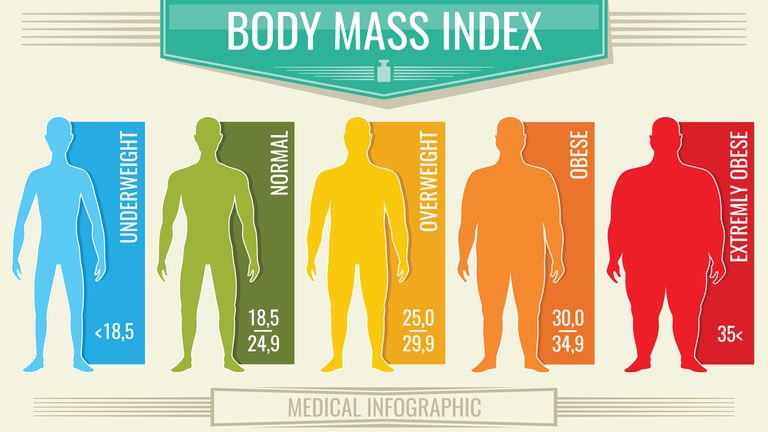Severe obesity increases risk of early death by 50%, study finds
Severely obese people are 50% more likely to die early than those who are a healthy weight, a study of 2.8 million adults suggests.
Experts analysing health, death and sickness data from UK adults found that being overweight and obese is also linked to a significantly higher chance of serious disease.
Presented at the European Congress on Obesity (ECO) in Glasgow, the study found that people with a body mass index (BMI) of 30 to 35 were at 70% higher risk of developing heart failure.
Even a BMI of 25 to 30 increased the risk by 20%, while a BMI of 35 to 40 more than doubled the risk and a BMI of 40 to 45 almost quadrupled the risk compared to people of a normal weight.
The BMI is a measure that uses your height and weight to work out if your weight is healthy, according to the NHS. For most adults, an ideal BMI is in the 18.5 to 24.9 range.
The study also found that compared with normal weight individuals, a BMI of 25 to 30 more than doubled the risk of type 2 diabetes and sleep apnoea – pauses in breathing or shallow breathing during sleep.
A person with a BMI of 30 to 35 is more than five times as likely to develop type 2 diabetes and almost six times as likely to develop sleep apnoea, it said.
For those with a BMI of 35 to 40, the risk of type 2 diabetes was almost nine times higher, and 12 times higher for sleep apnoea.
People with severe obesity (BMI of 40 to 45) were 12 times more likely to develop type 2 diabetes and had a risk of sleep apnoea that was 22 times greater.
The results also showed that increasing weight was linked to higher risk of high blood pressure, irregular heartbeat and dyslipidaemia – abnormal levels of cholesterol and other fats in the blood.
People with a BMI of 40 to 45 were three times more likely to experience heart failure, high blood pressure, and dyslipidaemia.
This BMI was also linked to a 50% higher risk of dying prematurely from any cause compared to people of a normal weight.
The research found that the risk of developing serious health problems was highly dependent on whether or not people already had issues at the start of the study.
For example, having high blood pressure at the start of the study was strongly associated with developing dyslipidaemia, chronic kidney disease and type 2 diabetes.
Researchers looked at health, death and BMI data from more than 2.8 million adults between January 2000 and July 2018 from the UK Clinical Practice Research Datalink.
This was linked with hospital data to estimate the risk for serious health problems.
Author Christiane Haase, from Novo Nordisk in Denmark, which funded the study, said: “The health risks linked with having excess body weight are particularly high for type 2 diabetes and sleep apnoea.
“With the number of people living with obesity almost tripling worldwide over the past 30 years (105 million people in 1975 to 650 million in 2016), our findings have serious implications for public health.”
The BMI calculation is unable tell the difference between excess fat, muscle, or bone, so it can only indicate whether you are carrying too much weight – it can’t tell if you are carrying too much fat.
Source: Read Full Article



